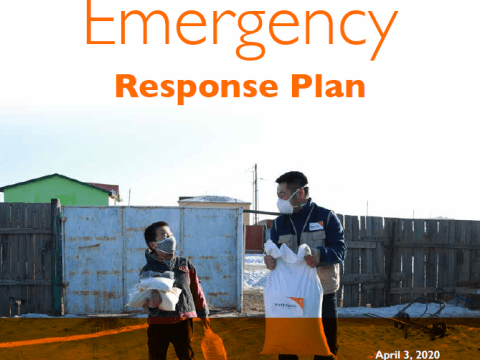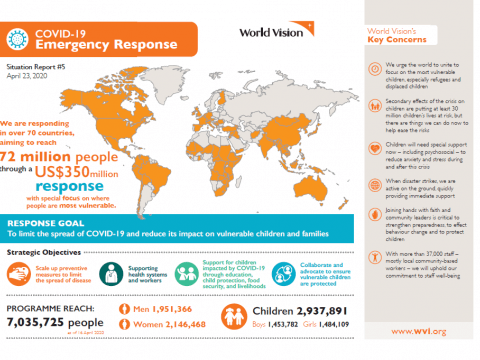COVID-19 Emergency Response Plan: Phase 2
Descargar
The COVID-19 pandemic is threatening to reverse decades of progress in the fight against poverty and income inequalities and it is putting the future of a generation of children in great jeopardy. In just four months the virus has spread to every corner of the globe. It has infected millions of people, overwhelmed health and welfare services, eroded economies, decimated family life and forced children out of school.
This document outlines the expansion* of World Vision’s COVID-19 emergency response. This US$350 million effort -- our largest ever -- is focused on limiting the spread and impact of COVID-19 and spans every place World Vision works, with the goal of reaching 72 million people, half of them children, over the next 18 months, with life-changing interventions.
This next phase of our COVID-19 emergency response will expand our partnership with communities to prevent exposure to COVID-19 while we also focus on the secondary impacts which are putting as many as 30 million children's lives in danger by:
- Increasing livelihoods support through a combination of food security and a variety of cash, voucher and savings interventions
- Investing in child protection, to reduce violence against children, provide mental health and psychosocial support to help families cope with stress
- Providing support for children in lockdown continue their educations
- Mobilising, equipping and training health workers and faith leaders to promote accurate information and to appropriately trace and care for the sick within their communities.
- Strengthening advocacy efforts with the Unitated nationls and with local and national governments for the protection of children living in fragile contexts who stand to be most affected by COVID-19.
*World Vision launched our global response to COVID-19 on March 11, hours after the World Health Organization declared COVID-19 as a pandemic. Our initial response efforts initially focused on 17 priority countries. Within weeks, it was clear that the virus had spread to every country where World Vision works and that the secondary impacts will likley have a greater impact on children than the virus itself.

